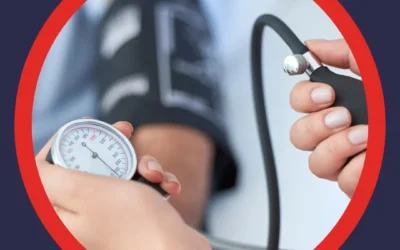World Hearing Day is the perfect time to raise awareness about ear and hearing care. This year’s theme, “Changing mindsets: empower yourself to make ear and hearing care a reality for all,” encourages individuals to take action. Hearing health impacts communication, learning, and overall well-being. Many cases of hearing loss can be prevented with the right steps.
By 2030, over 500 million people will need hearing rehabilitation. Additionally, one billion young people face the risk of permanent hearing damage from loud music and video gameplay. Protecting your hearing now ensures a lifetime of clear sound and meaningful connections.
Looking for ways to get involved? Here are ten meaningful ways to celebrate World Hearing Day and promote better hearing health for yourself and others.
1. Learn About Ear and Hearing Care
Knowledge is the first step toward better hearing health. Many people don’t realize how common hearing loss is or how easy it is to prevent.
Take time to read articles, watch educational videos, or attend an online seminar about ear and hearing care. Learn about safe listening habits, the impact of loud noise, and how to recognize early signs of hearing loss. Understanding the importance of hearing health empowers you to make informed decisions and encourage others to do the same.

2. Schedule a Hearing Test
Hearing loss can develop gradually, making it difficult to notice at first. Regular hearing tests help detect changes early and ensure timely intervention. Many adults don’t get their hearing checked as often as they should.
Make World Hearing Day the day you prioritize your hearing health. If you’ve never had a hearing test or it’s been a while, schedule an appointment with a hearing care provider. Early detection of hearing loss can prevent further damage and improve your quality of life.
Understand how to drive safely with hearing loss.
3. Protect Your Ears from Loud Noises
Noise exposure is a leading cause of hearing loss, yet it’s entirely preventable. Sounds above 85 decibels, like concerts, power tools, or heavy traffic, can damage your hearing over time.
To protect your ears:
- Wear earplugs or noise-canceling earmuffs in loud environments.
- Lower the volume on personal audio devices.
- Take breaks from loud noise to give your ears time to recover.
Reducing your exposure to excessive noise is one of the best ways to preserve your hearing.
4. Practice Safe Listening Habits
Personal audio devices can damage hearing if used improperly. Many people listen at unsafe volume levels without realizing it.
Follow these safe listening tips:
- Keep the volume below 60% when using headphones or earbuds.
- Use noise-canceling headphones instead of increasing volume to block background noise.
- Follow the 60/60 rule: Listen at 60% volume for no more than 60 minutes at a time.
- If others can hear your music through your headphones, it’s too loud.
By making small changes to your listening habits, you can prevent long-term hearing damage.
5. Clean Your Ears Safely
Earwax plays an essential role in keeping your ears healthy, but improper cleaning can lead to issues. Many people use cotton swabs, which can push wax deeper into the ear canal, leading to blockages or even eardrum damage.
To clean your ears safely:
- Use a warm, damp cloth to wipe the outer ear.
- Avoid inserting anything into the ear canal.
- If you experience earwax buildup or discomfort, visit a hearing care provider for professional removal.
Keeping your ears clean and free from blockages helps maintain good hearing health.

6. Stay Active and Manage Stress
Your overall health plays a significant role in hearing health. Regular exercise improves blood circulation, which supports the tiny hair cells in the inner ear responsible for hearing.
Chronic stress can also contribute to hearing problems. Stress increases cortisol levels, which may reduce blood flow to the ears and impact hearing. To reduce stress, try:
- Deep breathing exercises.
- Yoga or meditation.
- Regular physical activity, like walking or cycling.
A healthy body supports healthy ears. Prioritizing physical and mental wellness can protect your hearing for years to come.
7. Share Ear and Hearing Care Tips
World Hearing Day is an excellent opportunity to spread awareness. Many people don’t realize they’re putting their hearing at risk until it’s too late.
Share hearing care tips with family and friends:
- Talk about the dangers of loud noise exposure.
- Encourage regular hearing checkups.
- Promote the use of ear protection at concerts and sporting events.
- Post hearing health tips on social media to reach a broader audience.
Your advocacy can help others take better care of their hearing.
8. Explore Hearing Loss Treatment Options
If you or someone you know is experiencing hearing loss, World Hearing Day is the perfect time to explore treatment options. Untreated hearing loss can lead to social isolation, cognitive decline, and decreased quality of life, but solutions like hearing aids can help restore communication and confidence.
Steps to take:
- Schedule a hearing test with a local hearing care provider to assess your hearing.
- Learn about different types of hearing aids and how they improve speech clarity and sound quality.
- Ask about modern hearing aid features like Bluetooth connectivity, rechargeable batteries, and noise reduction.
- Discuss treatment options with a professional to find the best solution for your lifestyle and budget.
Hearing aids do more than amplify sound—they reconnect you with loved ones, improve daily interactions, and support long-term brain health. Taking action today can make a lasting difference in your well-being.
Find out more about BTE hearing aids and new features.
9. Support Hearing Health Programs
Many organizations work to improve hearing care access, especially for underserved communities. Consider supporting a hearing health program by:
- Donating to nonprofit organizations that provide hearing aids to those in need.
- Volunteering at a local hearing health event.
- Encouraging schools and workplaces to offer hearing screenings.
Every contribution helps spread awareness and ensures more people have access to proper hearing care.
10. Encourage Schools to Teach Hearing Health
Hearing health education should start early. Many children and young adults are unaware of the risks of noise-induced hearing loss and the importance of ear care. Schools can play a key role in promoting lifelong hearing wellness.
Ways to get involved:
- Speak with school administrators about incorporating hearing health into science or health classes.
- Donate educational materials about safe listening habits and noise exposure.
- Encourage schools to provide free hearing screenings for students.
- Volunteer to give a short presentation on ear and hearing care at a local school.
Raising awareness among students ensures future generations prioritize hearing protection and develop lifelong healthy listening habits. Investing in education today can prevent hearing loss tomorrow.
Find out more about hearing protection for children.
Take Action for Better Hearing Health
World Hearing Day is a reminder to prioritize hearing health. By taking simple steps today, you can protect your hearing and help others do the same.
If you’re ready to take charge of your hearing health, contact American Hearing + Audiology. Schedule a hearing test, get expert advice, and explore hearing solutions tailored to your needs. Your hearing matters—act now to protect it for a lifetime!




